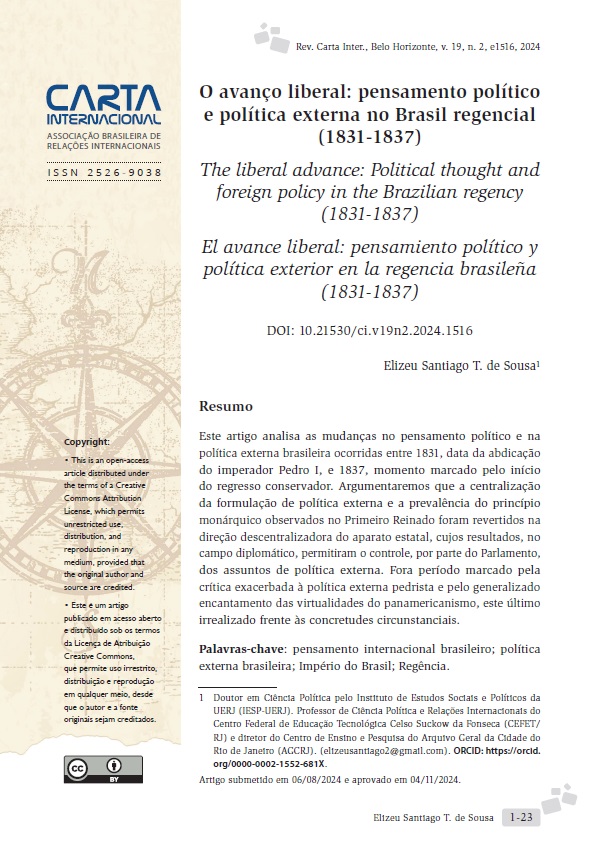The liberal advance
Political thought and foreign policy in the Brazilian regency (1831-1837)
DOI:
https://doi.org/10.21530/ci.v19n2.2024.1516Keywords:
pensamento internacional brasileiro, política externa brasileira, Império do Brasil, RegênciaAbstract
This article analyzes the changes in Brazilian political thought and foreign policy that
occurred between 1831, the date of Emperor Pedro I’s abdication, and 1837, a moment
marked by the beginning of the conservative regress. We will argue that the centralization
of foreign policy formulation and the prevalence of the monarchical principle observed
in the First Reign were reversed in the decentralizing direction of the state apparatus,
whose results, in the diplomatic field, allowed Parliament’s control of foreign policy
matters. It was a period marked by exacerbated criticism of Pedro I’s foreign policy and
by the widespread enchantment of Pan-Americanism, the latter unrealized in the face of
circumstantial concreteness.
Downloads

Published
How to Cite
Issue
Section
License
Copyright (c) 2024 Elizeu Santiago

This work is licensed under a Creative Commons Attribution 4.0 International License.
Authors who publish with this journal agree to the following terms:
- Authors retain copyright and grant the journal right of first publication with the work simultaneously licensed under a Creative Commons Atribuição 4.0 Internacional that allows others to share the work with an acknowledgement of the work's authorship and initial publication in this journal.
- Authors are able to enter into separate, additional contractual arrangements for the non-exclusive distribution of the journal's published version of the work (post it to an institutional repository or publish it in a book, for example), with an acknowledgement of its initial publication in this journal.


